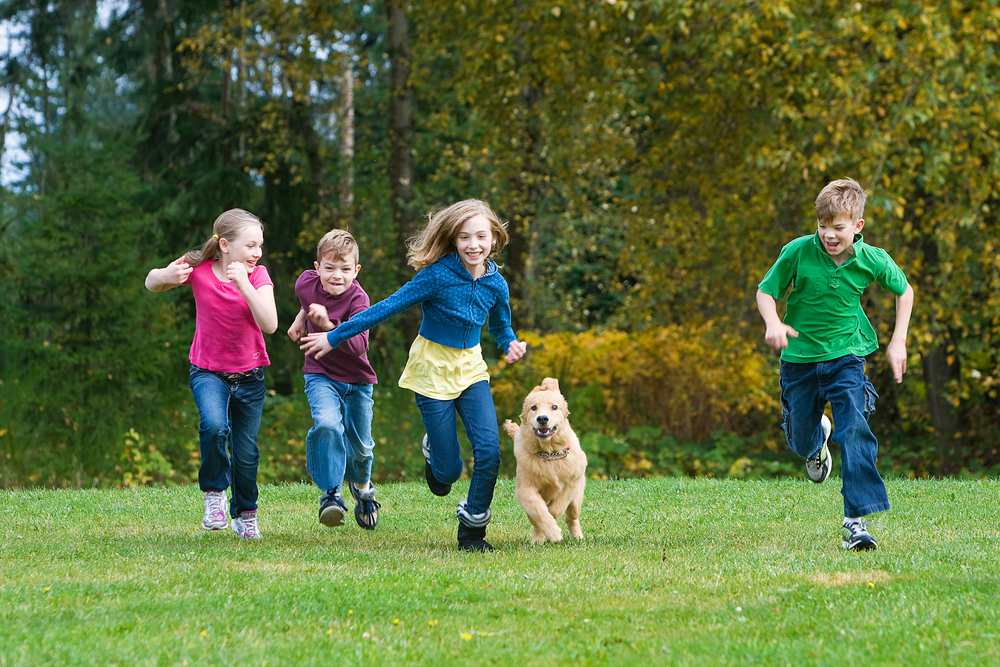Have you ever wondered why dogs chase people? It’s not just because they’re full of energy and love to play (although that might be true too!). Often, this behavior is deeply rooted in their instincts and natural behavior patterns. Understanding these can help us better manage our furry friends and ensure their well-being. After all, if a behavior is instinctual, they’ll need help learning when it’s appropriate and when to use their manners.
Understanding Your Dog’s Chasing Behavior
Dogs engage in a variety of behaviors, some of which may seem puzzling to their human companions. One such behavior is chasing, which can be directed toward people, other animals, or objects. The causes of this behavior are rooted in different aspects of their instinctual behavior. Let’s delve into the six main reasons for your dog chasing people.
The 6 Common Reasons Dogs Chase People
1. Territorial Behavior
Dogs are naturally territorial creatures, and they may chase people in an attempt to protect their territory. This could be their home, their yard, or any place they perceive as being theirs. If your dog exhibits signs like excessive barking, growling, or showing teeth when people approach their territory, this could be the reason behind their chasing behavior. It’s important to address this issue promptly to ensure the safety of both your dog and others.
If you are curious about your pet’s behavior or are looking for training tips, your vet can help.
If you need to speak with a vet but can’t get to one, head over to PangoVet. It’s an online service where you can talk to a vet online and get the personalized advice you need for your pet — all at an affordable price!
2. Instinct
A throwback to their ancestral survival instincts, many dogs possess a strong drive to chase. There is an innate desire to chase after moving objects, whether it’s a ball tossed across the yard, a squirrel darting up a tree, or a person walking by. It’s not aggressive behavior per se, as it’s a deeply ingrained part of a dog’s nature. This doesn’t mean that every moving object is perceived as “prey,” but rather that the act of chasing itself is intrinsically rewarding to the dog.

3. Herding Instinct
If your dog belongs to a breed that was originally bred for herding livestock, such as Border Collies or Australian Shepherds, they may display chasing behavior as part of their natural herding instincts. These dogs may attempt to “herd” people by chasing them, often accompanied by nipping at heels, circling, or barking. While this behavior is not usually intended to harm, it can be intense and disruptive, especially if the dog tries to herd small children or elderly people.
4. Playfulness
Dogs are naturally playful creatures, and chasing is often a part of their play repertoire. They might chase you, other pets, or even their own tails just for the sheer fun of it. However, while playfulness is generally a positive trait, it’s crucial to teach your dog to play safely and respect boundaries, especially when interacting with people who may not appreciate being chased.

5. Reinforced Behavior
Sometimes, a dog’s chasing behavior is simply a result of unconscious reinforcement. If a dog enjoys the reaction of people when they chase them, they will continue to do so. Differential reinforcement opportunities and obedience training are critical in curbing this undesirable behavior. An obedient and well-trained dog is more likely to behave appropriately around others simply because they have guidance on what is expected from them. If you’re struggling with training issues, don’t hesitate to seek help from a professional dog trainer or behaviorist.
6. Fear or Anxiety
Just like humans, dogs can experience fear and anxiety. If they feel threatened or uncomfortable, they may resort to chasing as a way to cope with their feelings. Signs of fear or anxiety in dogs include shaking, hiding, or excessive barking, among others. If your dog is chasing out of fear or anxiety, it’s essential to identify the root cause and work on reducing their stress levels, especially since these types of chases are more likely to end in aggression.
